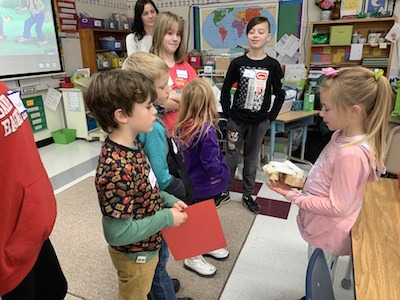Imagine, if you will, a world where classroom learning unexpectedly stopped for 55 million children in March of the school year. Hard to imagine. Wait. it’s reality. And our district leadership and teachers are challenged right now to minimize the setbacks to affected students and their families.
Studies show students will be behind. No surprise there. But how far behind? The data are not precise without precedent, but experts have extrapolated projections from previous closures, summer breaks, and general absenteeism.
In these projections, students are likely to return in fall 2020 with approximately 63 to 68 percent of the learning gains in reading relative to a typical school year and with 37 to 50 percent of the learning gains in math. (Education Week)
We surveyed hundreds of parents at Lake Pend Oreille District and the data matches. Many families struggled to get by and to give their students the attention they need while other families demonstrated little concern about their students’ learning experience.
To some degree, the divide is socio-economic. Students as always, learn differently. For those who have parents at home who are able to devote time to help them, they are doing better.
Families with working parents and difficult internet connections are the ones who struggle.
When asked if they are worried about their children being behind next year on a scale of (1) not worried at all (1) to (10) extremely worried, there is more concern than not, but you can see the response is somewhat weighted to the higher level of concern. The surprise here is that it is not overwhelmingly on the high end of that scale.

One feeling everyone shares: Families and students, regardless of their economic status are stressed and feeling the pressure to adapt and rebound.
What happens next, when students do return to school?
At PAFE, we must be highly strategic with our funds to make the greatest impact. We look upstream to resolve problems over symptoms and tackle them before they become wider spread.
Lake Pend Oreille School District leaders have done a great deal of reflecting on where PAFE’s resources could best be put to use and together, we have identified a plan to invest $100,000 on three high impact issues:
1. Full-day Kindergarten
Right now, the state provides direct funding for half-day sessions. Parents may choose to send their children to all-day Kindergarten at a cost. Given the current economic landscape, many of the children who need it the most do not have access.
Full-day Kindergarten gives children an advantage as it provides better social and academic skills. Teachers have more time in a full day to get to know kids and identify and address their learning challenges early. Early intervention increases odds for success later. (Center for Evaluation and Education Policy)
LPOSD was able to provide 47 scholarships last year but denied many additional requests. This program would provide tuition assistance for families helping bridge the socio-economic divide.
This is not a Band-aid repair; it is a real investment. When we give kids a boost in their first year, we give them an advantage for their entire 12 years in school. The cost of helping them catch up later is far greater than the cost of full-day K. An early investment in children’s social, emotional, and intellectual skills means lower grade retention and dropout rates for students later in life. (Economic Policy Institute and Committee for Economic Development)
2. Professional Learning Communities
Our educators had two days to prepare for remote learning when COVID-19 hit. What an impressive job they did along with the support of community organizations, getting packets together, online curricula, devices to families, and wi-fi hotspots in key locations.
Now, teachers are faced with new challenges as they strive to understand the learning gaps created from the school closure. In the teacher grant cycle this spring, PAFE received more than $30,000 in staff requests for Professional Learning Communities (PLCs) that give teachers the training they need to work in unison to address every student’s needs as they re-enter school. PLCs will help them understand how to assess needs, identify academic standards, and adjust instruction accordingly. This plan will fund the program in a comprehensive approach, rather than by way of individualized grants.
3. Social-emotional programs
We don’t know the lasting impact a pandemic, stay-at-home order, and the stress of an economic downturn will have on these children.
The most common issue we heard from parents regardless of their circumstances is that their children miss their friends. Lack of social and sporting activities can lead to social-emotional problems.
Even more concerning is the perfect storm created by Covid-19 and an economic recession which increases stress and anxiety in the household, in turn, increasing possible abuse and neglect of our students. Home isolation means that our educators are unable to observe and therefore report incidents.
Many students are not getting the food they need or the moral support they need. Socio-economic problems lead to social-emotional problems.
To that end, we want to provide the school district a flexible fund that would be used for supplemental food, professional counseling, medical assistance, clothing, school supplies, etc.
Resilience in this generation
When we asked the parents in our community how they were managing, many said they were adapting by being more lenient both to themselves and their children. If there was ever a time to accept “less than perfect,” now is that time.
“…Our students are flexible and resilient. They are gathering the pieces that are meaningful now and we will do what we can in the fall to adjust our pacing and our curriculum to meet those needs.” – Andra Murray, director of teachers and learning, Lake Pend Oreille School District
There are many serious causes that need your financial support right now and in uncertain times, you are making more careful and informed decisions with your giving. Please join us in resolving problems now to prevent symptoms in future generations.
